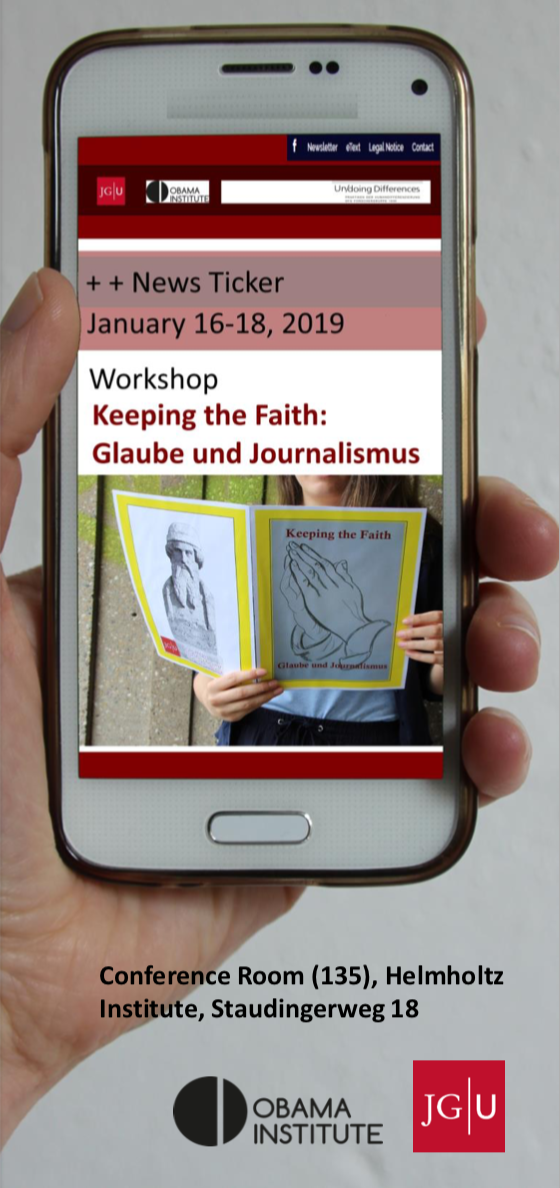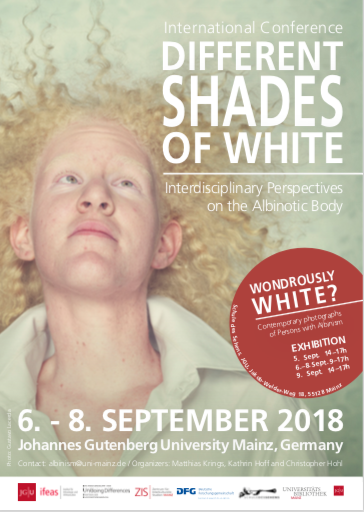Arbeitstagung der AG Schauspieltheorie der Gesellschaft für Theaterwissenschaft, Institut für Film-, Theater-, Medien- und Kulturwissenschaft, JGU Mainz, 22. und 23. November 2019
Die Arbeitsgruppe Schauspieltheorie der Gesellschaft für Theaterwissenschaft trifft sich am 22. und (optional) am 23. November 2019 zu einer Arbeitstagung an der Johannes Gutenberg-Universität Mainz. Die Ausrichtung der Tagung erfolgt in Kooperation mit dem Mainzer Institut für Film-, Theater-, Medien- und Kulturwissenschaft (FTMK) und insbesondere mit dem an der Schnittstelle von Sozial-, Kultur- und Geisteswissenschaften forschenden DFG-Teilprojekt „Theater zwischen Reproduktion und Transgression körperbasierter Humandifferenzierungen“ (2016–2020). In Fortsetzung und Öffnung der mit der Arbeitstagung in Leipzig zu „Dispositive professionellen Schauspielens: Praktiken, Diskurse, Machtgefüge“ (März 2017) begonnenen thematischen Neuausrichtung der Gruppe möchte die Tagung nicht nur zu einem kritischen Blick auf entsprechende Phänomene in historischen wie gegenwärtigen Kontexten anregen, sondern zugleich auch deren theoretische ‚Einhegung‘ zur Diskussion stellen.
Tagungsflyer zum Download
Tagungshomepage
„Spielräume“ professionellen Schauspielens: Dispositiv, Institution or what else?
22.-23. November 2019, JGU Campus, Info-Box
Organisation: Hanna Voss und Friedemann Kreuder

 Religiöse Medien sind Teil der Wissensproduktion einer Glaubensgemeinschaft. Als Produzenten, Verteiler und Archivare spielen Medien eine wichtige Rolle bei der Erhaltung und Weiterführung einer Glaubenstradition. In diesem Workshop setzen wir uns damit auseinander, wie religiöse Journalisten und andere, die an der Produktion von religiösen online Inhalten und Printmedien beteiligt sind, arbeiten und so religiöse Zugehörigkeit pflegen und unterstützen. Daher werden wir uns mit drei Bereichen des religiösen Journalismus auseinandersetzen: Inhalten, Technologien und dem Netzwerk.
Religiöse Medien sind Teil der Wissensproduktion einer Glaubensgemeinschaft. Als Produzenten, Verteiler und Archivare spielen Medien eine wichtige Rolle bei der Erhaltung und Weiterführung einer Glaubenstradition. In diesem Workshop setzen wir uns damit auseinander, wie religiöse Journalisten und andere, die an der Produktion von religiösen online Inhalten und Printmedien beteiligt sind, arbeiten und so religiöse Zugehörigkeit pflegen und unterstützen. Daher werden wir uns mit drei Bereichen des religiösen Journalismus auseinandersetzen: Inhalten, Technologien und dem Netzwerk.
 Friedemann Kreuder / Ellen Koban / Hanna Voss (Hg.)
Friedemann Kreuder / Ellen Koban / Hanna Voss (Hg.) In der differenzierten und individualisierten Gegenwartsgesellschaft unterscheiden Menschen einander durch eine wachsende Vielfalt durchmischter und situativ kontingenter Merkmale wie Nationalität, Ethnizität, Geschlecht, Alter, Klasse, Sprache und Religion, nach politischer und sexueller Orientierung, Leistungsfähigkeit, Attraktivität und Konsumpräferenzen.
In der differenzierten und individualisierten Gegenwartsgesellschaft unterscheiden Menschen einander durch eine wachsende Vielfalt durchmischter und situativ kontingenter Merkmale wie Nationalität, Ethnizität, Geschlecht, Alter, Klasse, Sprache und Religion, nach politischer und sexueller Orientierung, Leistungsfähigkeit, Attraktivität und Konsumpräferenzen. Andrew Apter is Professor of History and Anthropology at the University of California, Los Angeles (UCLA), where he directed the James S. Coleman African Studies Center and a Mellon Faculty Seminar in Black Atlantic Studies. His books include Black Critics and Kings: The Hermeneutics of Power in Yoruba Society (1992); The Pan-African Nation: Oil and the Spectacle of Culture in Nigeria (2005) which received the 2007 Amaury Talbot Prize awarded by the Royal Anthropological Institute; and Beyond Words: Discourse and Critical Agency in Africa (2007), all with the University of Chicago Press. He also co-edited Activating the Past: History and Memory in the Black Atlantic World (2010) with Lauren Derby. With his latest book, Oduduwa’s Chain: Locations of Culture in the Yoruba Atlantic, forthcoming in 2017, he is currently working on “History in the Dungeon: Atlantic Slavery and the Spirits of Capitalism,” a project that focuses on slave forts and castles and restores enslaved Africans (and their hyper-alienated labor power) to the historically repressed epicenters of capitalist modernity.
Andrew Apter is Professor of History and Anthropology at the University of California, Los Angeles (UCLA), where he directed the James S. Coleman African Studies Center and a Mellon Faculty Seminar in Black Atlantic Studies. His books include Black Critics and Kings: The Hermeneutics of Power in Yoruba Society (1992); The Pan-African Nation: Oil and the Spectacle of Culture in Nigeria (2005) which received the 2007 Amaury Talbot Prize awarded by the Royal Anthropological Institute; and Beyond Words: Discourse and Critical Agency in Africa (2007), all with the University of Chicago Press. He also co-edited Activating the Past: History and Memory in the Black Atlantic World (2010) with Lauren Derby. With his latest book, Oduduwa’s Chain: Locations of Culture in the Yoruba Atlantic, forthcoming in 2017, he is currently working on “History in the Dungeon: Atlantic Slavery and the Spirits of Capitalism,” a project that focuses on slave forts and castles and restores enslaved Africans (and their hyper-alienated labor power) to the historically repressed epicenters of capitalist modernity.